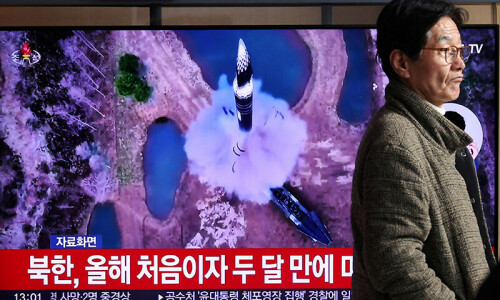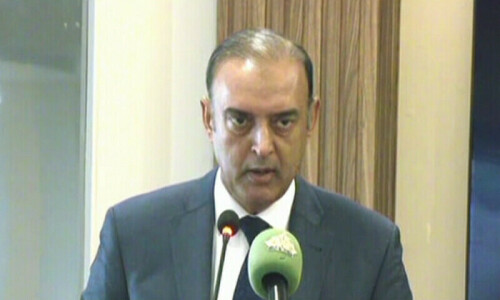PIESTANY (Slovakia), Sept 13: Russia’s military intervention in Georgia was aimed at obstructing Europe’s efforts to cut its reliance on Russian energy resources and diversify its supplies, Poland’s president said on Saturday.
Lech Kaczynski accused Moscow of using its energy policy to blackmail Europe which depends heavily on oil and gas imports from Russia.
Kaczynski said it was in the European Union’s interests to diversify sources of energy commodities.
“The situation in Georgia is complicating this, and I think it was Russia’s aim to make it more complicated,” Kaczynski said after meeting the presidents of Czech Republic, Hungary and Slovakia in the western Slovak spa town of Piestany.
Concerns about transit routes for oil and gas through eastern European countries, which are seen as alternatives to Russian supplies, intensified in August after Georgia tried to retake the breakaway region of South Ossetia and Russia responded with force.
Azerbaijan and Georgia are links in a Western-backed energy corridor that bypasses Russia. The West fears these could be in jeopardy after Moscow’s military action.
The Polish president said diversification of energy supplies did not mean the EU should stop buying oil and gas from Russia, but he called on Moscow to change the way how it deals with its partners.
“We should also not forget that an element of blackmail cannot be included in the energy policy of our partner,”
Kaczynski said. “Energy policy should not define foreign policy, which, unfortunately, is the case today.”
A key part of Europe’s diversification plans is the Nabucco pipeline, a US- and EU-backed project that would take Azeri gas to Europe via Georgia and Turkey.
Some analysts say the war in Georgia may complicate efforts to move the Nabucco project forward if the instability prompts Central Asian suppliers to choose other potential export routes.
Ex-Soviet Georgia is already a key energy transit route. It is at the centre of the Baku-Tbilisi-Ceyhan (BTC) pipeline, which ships 850,000 barrels per day (bpd) of high quality Azeri crude oil from the Caspian to the Mediterranean.—Reuters















































Dear visitor, the comments section is undergoing an overhaul and will return soon.